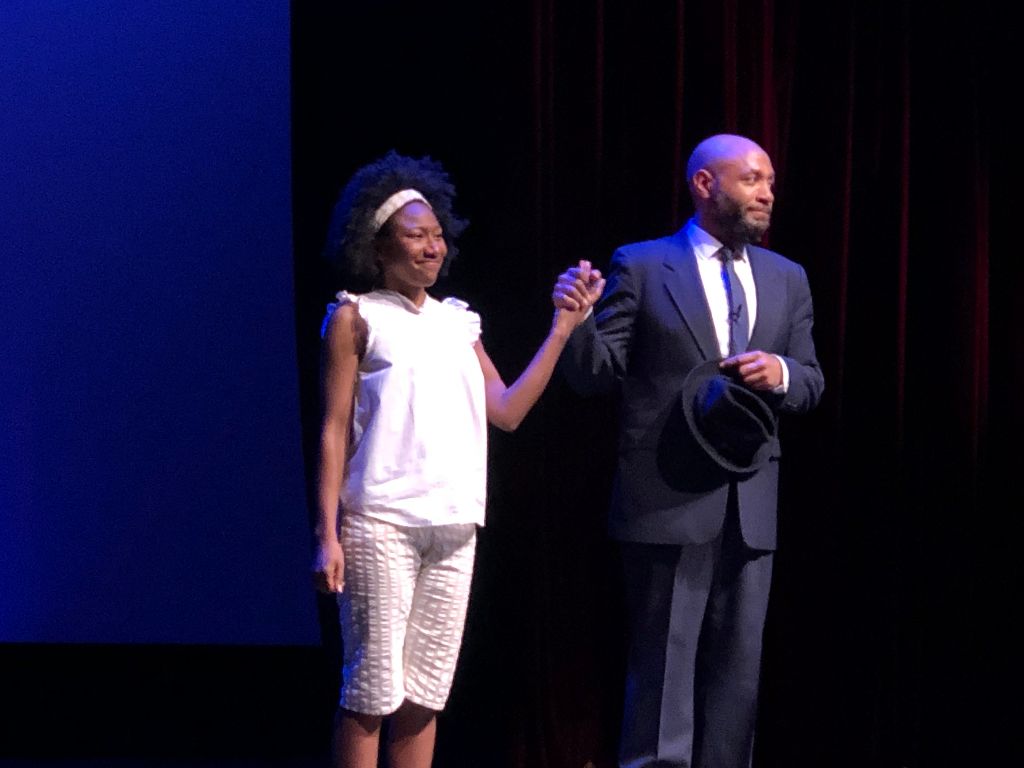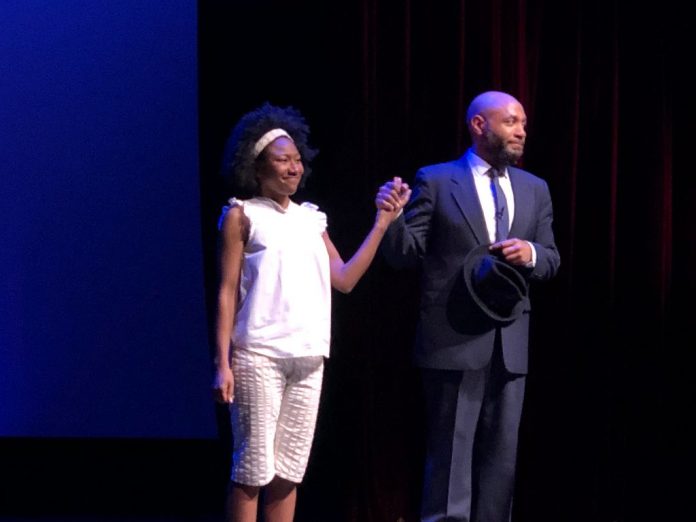This is a play that poignantly describes race relation in the United States, a topic that has dominated American life for more than 150 years. Like Middle East peace, it is one of those intractable issues that fester and find fertile ground for rejuvenation every so often. One of these times was 1969, and the place was Omaha, Nebraska.
Unlike famous race riots of the 60s in Detroit and Los Angeles, the one in Omaha has been forgotten on the national stage, as if it had been covered in a cloak of invisibility. This is doubly appropriate as the play Vivian’s Music, 1969 is being presented in Tucson by The Invisible Theatre.
A 5-star hit at the Edinburgh Fringe Festival in 2018, this play will be returning there in 2020. In the meantime we have the delight of seeing it here, a special treat as playwright Monica Bauer lives in Tucson.
The two characters, Vivian and Luigi, slip in and out of a variety of characters, genders, races and ages at the drop of a hat. Russell Jordan said “I play Luigi, my mother, a lady from the church, an older Polish guy and his wife.” Kailah King explained that she plays “Viviane, my boyfriend, my mother, sister, my friend and my teacher.” While it sound confusing, they handle this morphing with such aplomb that it all seems quite natural.
Luigi also plays “a little 14-year-old girl” a character Bauer said “is based on me, but is not me, and Luigi is based on my drum teacher. When I was 12 years old I lived in Omaha, and the accordion studio that was 2 blocks away from our house in the Polish neighbourhood (it had 4 churches and 8 bars) became a rock and roll studio. One of the people brought in to teach rock and roll instruments was my beloved drum teacher Luigi Waits. He is the first African American I actually had a conversation with; at that time Omaha was a segregated town. There was the North side and South side and never the twain would meet.”
What we see on stage now has had a long evolution, beginning when Bauer was in graduate school (after she work as a college professor). Premiered as My Occasion of Sin, it was a very different play, with six characters. It earned the Emerging Playwright award from Urban Stages in New York in 2011, and in 2014 Jordan appeared in a staged reading of the play, but Bauer was still wrestling with how to make the African American story real. Part of her solution was to get rid of all the white people. The result is the play we see now.

Vivian’s Music, 1969 has a kernel of real history, inspired by a tragic event. “Monica puts her take on what could have happened to this young girl,” explained King, “but what did happen is she was leaving a party with friends and someone called the cops because they thought people were breaking in. Teen kids were scattering in the street. A white police officer, as she is running away, shoots her in the back of the head.”
The play is an amalgam of that real event, and the story of Bauer’s first drum teacher which illuminates the interaction between black folks and Polish folks. Most of the time plays about race relations hit you in the face with it, but Vivian’s Music transmits a more subtle message woven around the concept of invisibility. Vivian’s boyfriend is a young Black Panther. Once, when she yelled at him that she could not accept his strident calls for anarchy, he hit her. By making her views known, Viviane tells us, she became visible, and thus vulnerable. She learned her lesson here, for later when she attended a Black Panther meeting, she “sat invisible.” Only when she made the mistake of dropping her cloak of invisibility again did she become vulnerable once more, this time with fatal consequences. Thus the play becomes elevated to the level of a timeless parable, applicable to many cultures and periods both past and future.
“It captured a moment in time,” said one woman who saw the play in Tucson. “I was moved almost to tears.” Combined with a powerhouse duo of acting, Vivian’s Music, 1969 well earned its 5-star rating in Scotland.
Vivian’s Music, 1969 sees its second and final performance today, Jan. 19, 2020.
Performance is at the Berger Theatre on Speedway Blvd, just west of I-10.
Visit the website for tickets: www.invisibletheatre.com
Photos by C Cunningham














